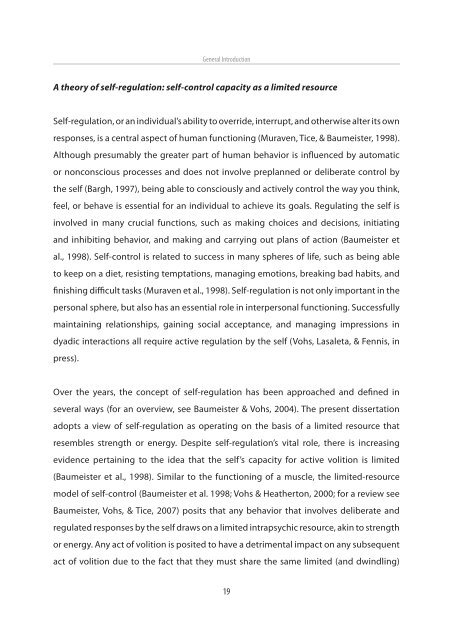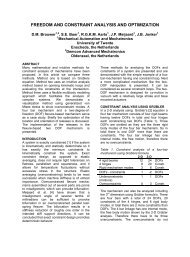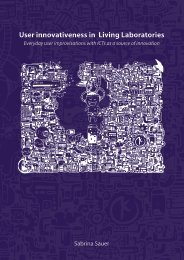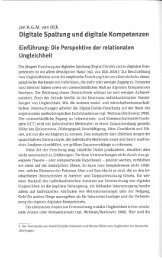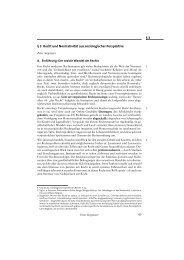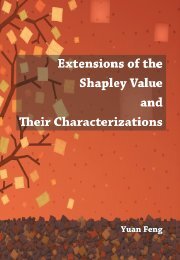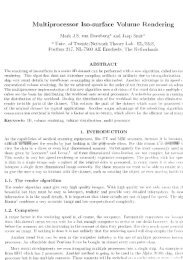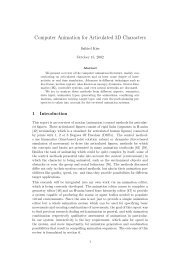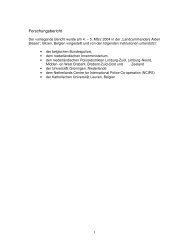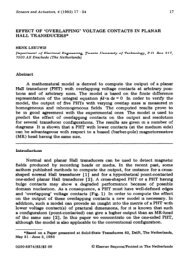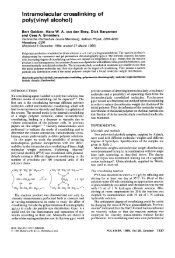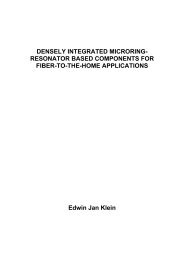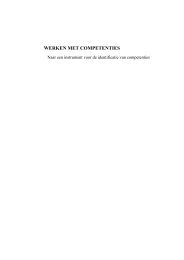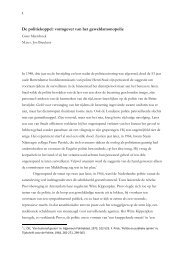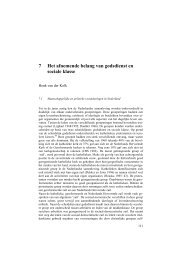Chapter 1 - Universiteit Twente
Chapter 1 - Universiteit Twente
Chapter 1 - Universiteit Twente
You also want an ePaper? Increase the reach of your titles
YUMPU automatically turns print PDFs into web optimized ePapers that Google loves.
General Introduction<br />
A theory of self-regulation: self-control capacity as a limited resource<br />
Self-regulation, or an individual’s ability to override, interrupt, and otherwise alter its own<br />
responses, is a central aspect of human functioning (Muraven, Tice, & Baumeister, 1998).<br />
Although presumably the greater part of human behavior is influenced by automatic<br />
or nonconscious processes and does not involve preplanned or deliberate control by<br />
the self (Bargh, 1997), being able to consciously and actively control the way you think,<br />
feel, or behave is essential for an individual to achieve its goals. Regulating the self is<br />
involved in many crucial functions, such as making choices and decisions, initiating<br />
and inhibiting behavior, and making and carrying out plans of action (Baumeister et<br />
al., 1998). Self-control is related to success in many spheres of life, such as being able<br />
to keep on a diet, resisting temptations, managing emotions, breaking bad habits, and<br />
finishing difficult tasks (Muraven et al., 1998). Self-regulation is not only important in the<br />
personal sphere, but also has an essential role in interpersonal functioning. Successfully<br />
maintaining relationships, gaining social acceptance, and managing impressions in<br />
dyadic interactions all require active regulation by the self (Vohs, Lasaleta, & Fennis, in<br />
press).<br />
Over the years, the concept of self-regulation has been approached and defined in<br />
several ways (for an overview, see Baumeister & Vohs, 2004). The present dissertation<br />
adopts a view of self-regulation as operating on the basis of a limited resource that<br />
resembles strength or energy. Despite self-regulation’s vital role, there is increasing<br />
evidence pertaining to the idea that the self’s capacity for active volition is limited<br />
(Baumeister et al., 1998). Similar to the functioning of a muscle, the limited-resource<br />
model of self-control (Baumeister et al. 1998; Vohs & Heatherton, 2000; for a review see<br />
Baumeister, Vohs, & Tice, 2007) posits that any behavior that involves deliberate and<br />
regulated responses by the self draws on a limited intrapsychic resource, akin to strength<br />
or energy. Any act of volition is posited to have a detrimental impact on any subsequent<br />
act of volition due to the fact that they must share the same limited (and dwindling)<br />
19


